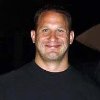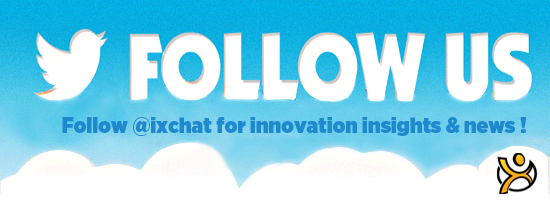The 2016 Digital Tonto Reading List
 Books have been very much on my mind this year, even more than usual. Full-length books provide a depth and a breadth that you just can’t get from an article or a blog post. A good, thoughtful book is a profoundly important thing and I’ve always been an active reader and enjoy letting new ideas wash over me.
Books have been very much on my mind this year, even more than usual. Full-length books provide a depth and a breadth that you just can’t get from an article or a blog post. A good, thoughtful book is a profoundly important thing and I’ve always been an active reader and enjoy letting new ideas wash over me.
This year, though, I wrote my own, Mapping Innovation (coming out in May), and that’s given me new perspective. I had no idea how much went into writing a book. Not just the writing of it, but the extensive editing, design, production, and marketing are all extensive processes in their own right and involve teams of specialists.
So while like in past years, this list reflects what I have written and thought about on Digital Tonto, it also includes those that shaped my own book, including some I used as source material. So, as the end of the year approaches, I hope you find a few that you can read and learn from as you get some rest after a really crazy year. Have a great holiday!
Book(s) of the Year
Every year I choose one or two books that have most affected my thinking and, this year, that is undoubtedly The Rise and Fall of American Growth by economist Robert Gordon. It is not for the faint of heart, including almost 700 pages of economic analysis, but if you want to understand how technology and economics intertwine, it is an absolute masterwork.
Gordon starts with the 50-year period between 1870 and 1920, which saw the rise of electricity and the internal combustion engine. These, in turn, created an unprecedented boom in productivity between 1920 and 1970, after which growth declined significantly. He also predicts that, due to a lack of significant innovation as well as a number of headwinds, such as an aging population, debt and climate change, productivity will diminish further in the coming years.
While I do not agree with Mr. Gordon’s argument that we are doomed to a future of declining productivity — in fact, I believe we are about to enter a new era of innovation — he offers a wonderfully engaging and informative analysis of the past. In effect, he describes many of the important forces that shaped the 20th century.
I’m also including my own book, Mapping Innovation, in this space. While this is clearly a shameless plug, it also definitely meets the requirement of “having shaped my thinking over the past year.†While reading a book can certainly do that, there’s nothing quite like writing one. Also, if you’ve enjoyed my thinking on this blog, I truly believe you’ll love this book!
Business, Management, and Economics
Every time Roger Lowenstein comes out with a new book, I buy it immediately and his newest, America’s Bank, about the creation of the Federal Reserve system, does not disappoint. Interestingly, it begins with a financial crisis not unlike the one we recently experienced, the Panic of 1907, and chronicles the years of struggle and deliberation that lead to the Federal Reserve Act of 1913. As always, Lowenstein presents the history in an incredibly engaging way.
New York Times reporter Charles Duhigg came out with a follow-up to his earlier bestseller, The Power of Habit and his new one is just as good. Smarter Faster Better helps unlock the secrets of what makes us more productive. Also, The Halo Effect, by Phil Rosenzweig is one of the best books on business strategy I have ever read.
The Year Without Pants, by Scott Berkun, offers an entertaining and informative look into the future of work. Friend & Foe, by Adam Galinsky and Maurice Schweitzer, two business school professors, provides insights on when to cooperate and when to compete.
A number of books about platforms came out recently. I read Matchmakers and The Platform Revolution, both of which give comprehensive accounts of the economics that drive platform businesses. If this is a subject that interests you, you might want to pick up one of these.
I also finally got around to reading The Four Steps to the Epiphany, by Steve Blank and The Lean Startup by Eric Ries and was glad that I did. The insights that both offer are not limited to startups. If you want to learn more about how to launch any new endeavor, within an existing organization or as a completely new venture, you should read both.
Science, Technology, and Innovation
Everybody seems to be talking about Blockchain technology these days and the father and son team of Don and Alex Tapscott deliver a useful guide to understanding it in, Blockchain Revolution.
Samuel Arbesman is one of my favorite science writers and I loved his new book, Overcomplicated, which tackles the difficult issue of how to deal with a world where we build technologies too complex to fully understand. As usual, Arbesman is able to explain the issues in an engaging way without dumbing things down.
I also read The Doctors’ Plague, by Sherwin B. Nuland and The Mold in Dr. Florey’s Coat by Eric Lax. The first tells the incredible story of Ignaz Semmelweis, the Austrian Doctor who first discovered antiseptic practices in hospitals, and was so ostracized for it that it drove him raving mad. He ended up dying in a mental hospital, ironically of an infection he contracted there. The second explains the true history of the discovery of penicillin. I heartily recommend both.
Mindset, by world renowned psychologist Carol Dweck is a book I think everybody should read at some point. Based on decades of her research, it shows that how we see our abilities — as either fixed or able to grow — greatly influence whether we will achieve our goals.
Finally, I read Michael Hiltzik’s wonderful history of Xerox PARC, Dealers of Lightning and Thomas Watson Jr.’s stunningly candid memoir, Father, Son & Co. If the history of technology interests you, these are both must reads.
History, Society, and Politics
Yuval Noah Harari’s Sapiens was one of the most talked about books this year. I didn’t like it as much as some seemed to, but it was still very good. On the other hand, J.D. Vance’s Hillbilly Elegy was every bit as wonderful as it was chalked up to be and I would encourage every American to read it.
Peter Bergen does his usual excellent job of investigative reporting in United States of Jihad, which explores the phenomenon of homegrown terrorism in the US and Mark Landler tells the story of the partnership between Barack Obama and Hillary Clinton in Alter Egos.
Matt Ridley gives a thought provoking take about how society changes over time in The Evolution of Everything. I also finally got around to Robert Coram’s biography of Colonel John Boyd, who developed the OODA loop. I was glad I did. His ideas are relevant far beyond military affairs.
So that’s my list for this year. If you have any suggestions, feel free to let me know in the comments section.
image credit: tulsalibrary.org
Wait! Before you go…
Choose how you want the latest innovation content delivered to you:
- Daily — RSS Feed — Email — Twitter — Facebook — Linkedin Today
- Weekly — Email Newsletter — Free Magazine — Linkedin Group
 Greg Satell is a popular speaker and consultant. His first book, Mapping Innovation: A Playbook for Navigating a Disruptive Age, is coming out in 2017. Follow his blog at Digital Tonto or on Twitter @Digital Tonto.
Greg Satell is a popular speaker and consultant. His first book, Mapping Innovation: A Playbook for Navigating a Disruptive Age, is coming out in 2017. Follow his blog at Digital Tonto or on Twitter @Digital Tonto.
NEVER MISS ANOTHER NEWSLETTER!
LATEST BLOGS
Three things you didn’t know about credit cards
Photo by Ales Nesetril on Unsplash Many of us use credit cards regularly. From using them for everyday purchases to…
Read MoreFive CV skills of a business-minded individual
Photo by Scott Graham on Unsplash The skills listed on a CV help employers quickly understand your suitability for a…
Read More


